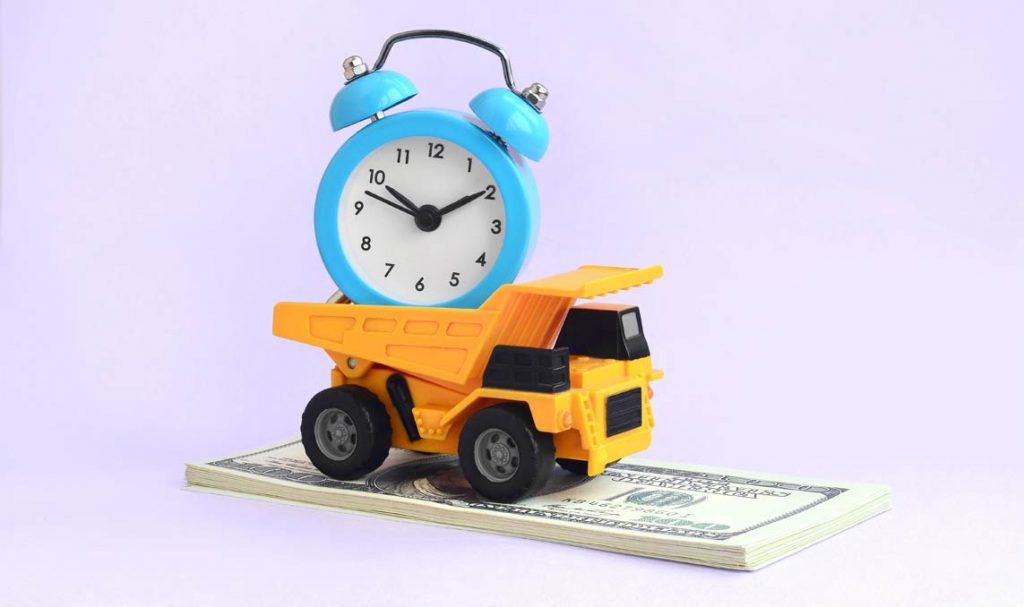Are you a young person who wants to learn budgeting for teens?
Are you a parent who wants to learn how budgets for teens are different than the budget you’re used to keeping for the household?
Either way, you’ve landed in the perfect little corner of the internet to help you understand everything that you need to know about teenage budgeting.
Setting Up Your Teenage Budget for the First Time

A budget is, essentially, a way of planning and organizing your money.
The first step is to plan it, the next step it so organize/store it.
Some people like to put cash into envelopes each month that are labelled with things like “Car insurance”, “Movies”, “Dining out”, and so on. Other people like to keep separate savings or checking accounts for their major categories of costs and expenses, and some people will just keep it all in one account and track it that way.
A budget is useless if you can’t keep track of what you’re spending your money on. You can use a spreadsheet, a text document, a paper journal, sticky notes, or software for budgeting to keep track of everything.
Some popular budgeting apps are YNAB (You Need a Budget), Acorns, Greenlight, and and handful of others. Excel and Google Sheets both work for keeping track of your spending habits if you want to manually enter everything in, or consider an app like Mint that ties in with your bank accounts and automatically logs your spending.
Not sure where to start with your budget?
If the hardest part of making this teenager’s budget is figuring out where to start, simply begin by monitoring your spending for a couple of weeks or even a month or two. Keep spending and buying the things you normally buy, but just start keeping track of what you’re spending your money on.
After some time has passed, total up your purchases and you’ll know how much you spend in different categories like food, housing, entertainment, and more.
Here Are My 9 Budgeting Tips for Teens

9. Define The Necessities in your Budget for Teens
A good way to start your budget is to decide the things that are absolutely necessary for you to spend money on. We’re not talking about life and death here, just the stuff that matters to you the most.
Editor’s note: We’re using the term “absolutely necessary” a bit loosely for the purpose of budgeting for teens, and it’s basically up to you to decide what the threshold is for what should make it into this first group of expenses.
For one teenager, a cellphone plan with plenty of data to stream, or a Spotify account, or something else could be things they really don’t want to live without. For someone else, it could be a membership to a paintball range. For other teenagers, it could be car insurance and gas to get them to work.
We aren’t giving a specific teen budget template here because it varies so much from person to person. That is why it’s a good idea to start with the things you absolutely want to be able to afford and then to work outwards from there.
8. Your Income as a Teen Will Fluctuate – That’s OKAY!
If you’re working part-time, or you just work during the summer to save up money to live off of during the school years, or you do odd jobs and gigs, it’s not uncommon for teenagers to have incomes that fluctuate from month to month or quarter to quarter.
If this is the case for you, then you don’t need to worry about starting your budget by looking at your monthly earnings.
Instead of the first step to creating a budget for teens being to figure out how much money you make each month, I like to start by figuring out how much I absolutely need to spend. If you know you can spend $500 or $750 or some other amount every month, then it’s possible that you’ll end up “filling in the gaps” and buying things you may not have otherwise purchased, which doesn’t help your savings!
A big reason that teens become interested in budgeting is that they want to build a future where they aren’t always living paycheque to paycheque. Even though most people will earn less in their teenage years than later in life, this is still a very powerful time to start putting some money away.
7. But What About Starting With Savings?

Some budget tips for teens will recommend that you start by putting away a certain % of any money that enters your possession.
This would include instantly saving a portion of your paychecks from work, your tax refunds, and even that cash inside a birthday card from your favorite aunt.
There’s a famous book called The Wealthy Barber and it advocated for everybody to put aside 10% of all income they earn.
By doing this, and relying on decade’s worth of compounding interest, dividends and appreciation in the markets, the concept is that just about anyone will be able to live a comfortable life when they’re older.
Starting early helps a lot, especially if you stay strict with your savings through your 20s and 30s. Whether you go on to work a high-paying job, or you maintain a modest income, having that 10% off every paycheck sure can add up over the years.
To summarize the last couple of budgeting tips for teens, there are two ways that you can get started…
- You can start your budget by identifying the things that you absolutely want to spend money on each month, and seeing how much money is left over after that to save.
- Or, you can start by saving the specific amount that you’d like to save each month, and then figuring out your budget based on what’s left.
Your unique situation will play a role in which option to choose. An important factor to keep in mind is if you have dependents, like if you have a younger sibling that you care for, or you help out with some household bills, or you’re living on your own and you have to make rent each month, and so on.
If you have bills and expenses that are crucial like the ones above, you’ll obviously want to start by ensuring that all of that is covered before you start putting money into your budget for things like entertainment, parties, expensive clothing, dining out, and so on.
Which brings us to our next teen budgeting tip…
6. Know the Difference Between Needs, Wants and Desires When Budgeting for Teens

I know that we’ve already touched on this one a bit when we discussed determining the things that you absolutely want to spend money on each month and that you need to spend money on, but I want to break it down a little bit more by offering this additional budgeting strategy.
Needs: These are expenses that are absolutely critical for you to spend your money on. Some examples are rent, food, basic clothing, transportation, medicine, textbooks, contributing to an emergency fund, and so on.
Wants: These are, of course, things that you want. These will often be “nicer” versions of the needs, for example buying new shoes because you like how they look, going to a nice restaurant instead of grabbing a burger or cooking at home, and then things like video games, magazines, and other forms of entertainment and hobbies. You don’t want to go without these things because they bring you joy, but they probably aren’t absolutely necessary.
Desires: These are more aspirational than wants, but they’re good to include in your budget. These types of expenses will probably fall under the savings category of your teenager’s budget. This can include larger purchases later on like a car, a down payment for a home, a nice wedding, paying for tuition and student loans. These are things that you won’t be buying every month, but that can motivate you to save more money.
5. How Can a Teenager Create a Budget? (Without Finding Ways to Save Money!?)
One of the main purposes of creating a budget is to help you identify where all of your money is going and to track your spending. The purpose of tracking your spending and knowing these things is, at least in a roundabout way, to end up with more money at the end of the money or year. At least, that’s the case for most people.
Figuring out practical ways to categorize and create a budget with your existing money and income is a perfect thing to do, but what about if you don’t have enough room in your budget for everything you want?
Or what about if you want to save even more money, to grow your wealth even more quickly, so that you’ll have even more money saved up to grow over the years?
Earning more money is one way to create more room inside of your budget, but so is learning to save money and live a little more frugally.
Did you know that it costs you about $1.30 just to spend $1.00?

That’s right! Depending on your local taxes on income or sales taxes, you actually need to earn a lot more than $1.00 if you want to spend $1.00. Let’s say that on average, your tax bracket is around 30%, give or take. In order to have a dollar leftover after paying your taxes on that money, you’ll need to earn $1.30 or even more.
So spending $100 actually costs you about $130, spending $1000 actually costs you about $1300, and so on.
The next time you’re thinking of buying something you don’t really need, or an impulse purchase on a whim, remember this. Would you be willing to have to earn $130 to buy something for $100?
Keeping this in mind can give you some useful perspective when it comes to buying things, but it’s far from the only strategy for saving money.
Other Ways to Save Money for Your Budget
I won’t go into all of the countless ways to live frugally or to save money since there’s a lot of content about that all over the internet already. I just want to cover a few ways that you can save money, very quickly, and I’m referring to “saving money” as in spending less.
- Buy stuff when it’s on sale
- Be patient when you decide you want something, shop around, find a better price
- Buy things used instead of new when you can
- Do your best to stick to your budget and don’t spend extra money just because you have it
- Resist making impulse purchases
- Learn to cook and make great meals for yourself
In some circles, saving money can be considered one of the controversial topics for teens to discuss, since you can come off as being “frugal” or “cheap”, but you simply shouldn’t accept those criticisms from people who are irresponsible with their money, especially if they have wealthy parents to give them cash to spend on whatever they want.
4. Keep an Emergency Fund in Your Budget for Teenagers

You never know when you might desperately need $1000 for an emergency flight across the country, or an unexpected dental procedure, or any other number of costs that can come out of nowhere.
As you get older and have more responsibility financially, your older self will thank you for stashing away an emergency fund. You don’t have to start with much, even $10 a month when you first start making money, and increasing that as you get older, is a great way to ensure that you’re never broke.
An emergency fund is just a certain amount of money that you keep separately, and it’s like a fire extinguisher on the wall in a glass case that case “In Case of Emergency, Break Glass.” In other words, you don’t touch this emergency fund unless it’s, well, an emergency!
As you get older, you’ll want to aim for a larger emergency fund. Eventually, it’s a good idea to be able to cover all of your bills and expenses for at least 3 months without any new money coming into your possession. This is in case you lose your job, or there’s a downturn in the economy and your hours are cut, or for an emergency purchase as discussed earlier.
3. Find Ways To Make Money for Teens
Finding ways to save money is a great way to create some extra space in your budget, but making more money is also another key part of the equation.
If you can figure out ways to earn more money, you’ll have more leftover after taking care of your needs and your wants, which will get you to your desires sooner. It’s a lot easier to save up money more quickly when you’re earning more each month.
There are so many different ways to make some extra cash, and it’s been well-documented all over the web. The big points to remember are to watch out for anything that seems too good to be true or sketchy. Your best bet, at a young person, is to look at small businesses that are very easy to setup, here are a few ideas:
Lawncare: This is one of the classic jobs / side-hustles where teenagers, and anyone for that matter, can make a lot of money for themselves. One of the disadvantages of after school jobs is that they often pay fairly low hourly rates, and you always have to stress about whether or not you’ll be scheduled at the correct times. If you start a small lawncare company where you’re doing the work yourself, you can make a schedule that fist around your studies and social life. If you get a little busier, you can hire a friend or two to help out and now you’ve got a real business.
Babysitting: Babysitting and childcare is another very common way for teenagers to earn some extra money. If you’re babysitting on the weekend, you’ll earn some extra money for hanging out and watching Netflix and playing with some kids. In addition to the money you’ll earn, you’ll also probably save money since you won’t be out and about on the weekend. These babysitting tips for teenagers can help you to figure out how to make the most of this gig.
Social media consulting: One of the positive effects of social media on teens is that it gives them an opportunity to learn how to properly navigate social media, including the ins and outs on how to manage a profile, which can be translated into freelance gigs doing social media for companies, or even being hired as a consultant. Sometimes, in the world of business, it’s harder for younger people to break in and be taken seriously, but when it comes to social media, it’s actually a benefit to be younger and more familiar with the current most popular platforms.
Get a job: A high school student job is a great way to make some extra money, you can work evenings and weekends a couple days a week to earn enough money to pay for the things you want and still have a little leftover to save if you still live at home and don’t have a lot of bills.
Thoughts on putting your budget for teenagers on the backburner sometimes and just enjoying yourself…
You won’t want to spend your teenage years just working constantly and stressing about making a budget for teens that gives you as much money as possible, though. It’s important to enjoy yourself and do things you like, and oftentimes that means spending some of your dough, and that’s okay.
2. Learn to Say No To Unnecessary Purchases
Some salespeople are very good at what they do, especially when they get a commission on anything you buy, so sometimes you’ll walk into a store to shop around and they’ll bring on the pressure. While most teens don’t have a ton of disposable income, they can easily burn through a lot of their spending money if they don’t have strict budgets for teens and they have a hard time saying no.
Another way that saying no can save you money is if you have some friends who are always asking to borrow money but never seem to pay it back, or friends who like to spend all of their extra money on lavish things. If you are trying to save, and you have friends who like to go to expensive places or just buy things carelessly, you might feel pressured to keep up with them, so knowing when it say “no thanks” to expensive outfits or whatever else they’re buying will help you great deal.
Spending frivolously is why a lot of people end up in a habit of living paycheck to paycheck. Some of your friends may have a budget, whether it’s formal or just how things end up going, where they’re spending a lot more money on luxury items or experiences.
If you think your friends would find you less cool if you spent less on designer clothes or giong to fancy restaurants or whatever else your group is into, then they might not be the types of people who are worth sacrifice your financial security to impress. That’s just something to think about!
1. Using Goals and Milestones Helps With Teenagers Budgeting

When you have your whole life ahead of you, it can feel like you have tons of time to start saving, and this mindset can cause you to spend your younger years buying a bunch of pointless things or making less-than-great financial choices. There’s some room for this, you’ve got to live, right? But having some goals in mind, to use your money for, and that will encourage you to be wiser with your cash, is a great way to build a more stable future for yourself.
You can even give yourself rewards from your goals, for example for every $1100 that you’re able to save using your budget, you can give yourself $100 to spend on whatever extra stuff you’d like, that you normally wouldn’t buy.
Settings goals for yourself, and rewards, and milestones, is a really good way to stay encouraged. You can track your progress over time, and you can also extrapolate into the future to figure out how much you’ll have saved up by the time you’re 20, 25, or 30 if you were to keep saving the same amount as you are now.
Now You’re Ready to Start Budgeting for Teens!

I hope that these budgeting tips for teens have helped to shine some light on how to prepare a teens budget and how it can differ than other budgets.
Budgeting for teens is a little difference since the income tends to vary more, there may not be a steady income at all, and teens typically have less things that they need to spend money on compared to adults who have all sorts of bills and things to pay for.
